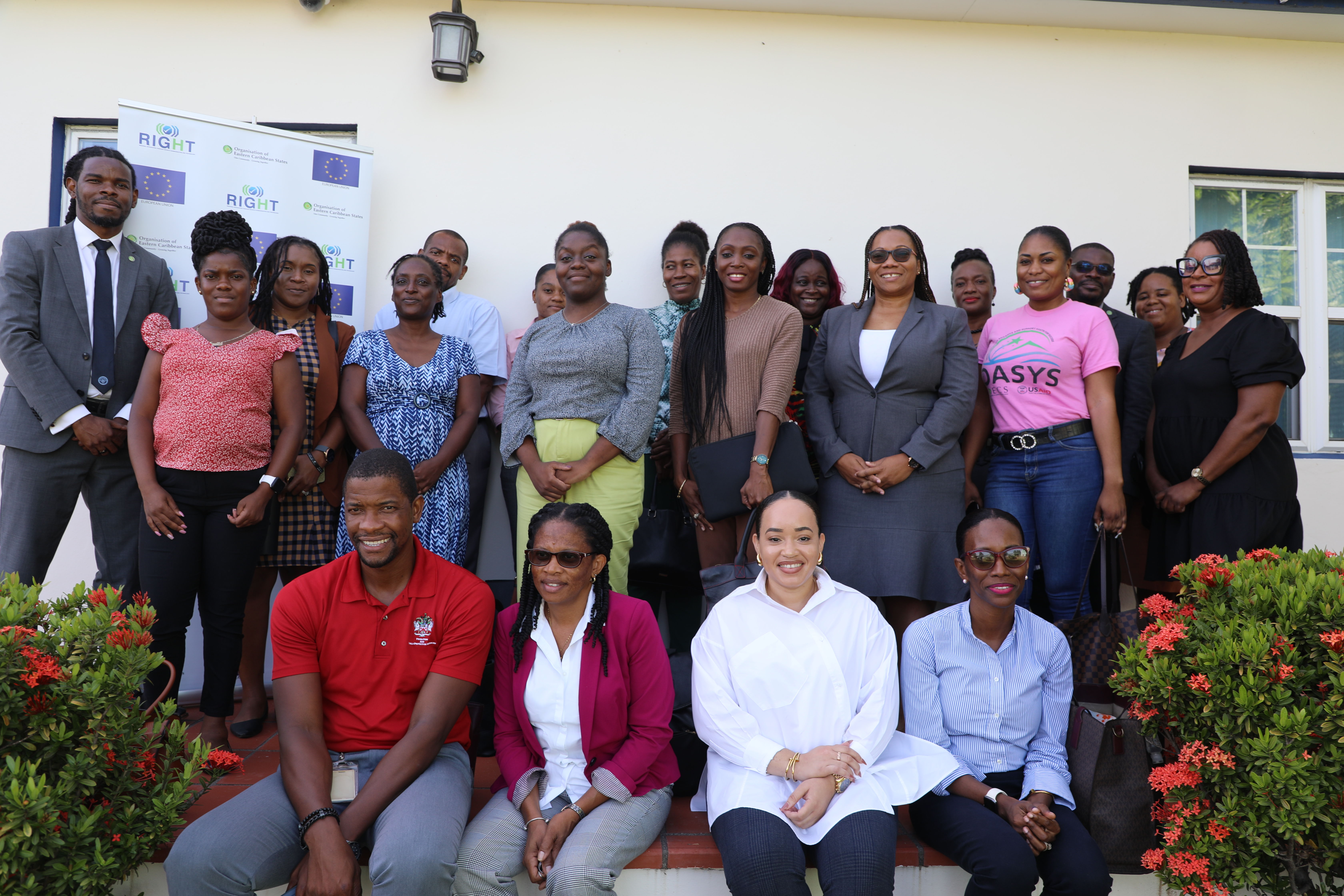OECS Continues to Strengthen the Free Movement of Persons Regime
OECS Media Release
The Organisation of Eastern Caribbean States (OECS) Commission has commenced a series of country missions to the Protocol Member States.
Between November 5 to December 7, 2023, stakeholder consultations were held in Antigua and Barbuda, the Commonwealth of Dominica, Grenada, St. Kitts and Nevis, Saint Lucia and Saint Vincent and the Grenadines. The engagements will be finalised in January 2024 following discussions with senior officials from Montserrat.
The mission aims to increase awareness among the public on the benefits of the Economic Union and the ongoing European Union-funded Regional Integration Through Growth Harmonisation and Technology (RIGHT) programme. It is also aims at promoting national action that will fully establish the free movement of persons regime. The regime is a core component of the Eastern Caribbean Economic Union (ECEU) established on June 18th, 2010 under the Revised Treaty of Basseterre (RTB).
In May 2011, the 53rd Meeting of the OECS Authority took the decision to grant OECS citizens and their qualifying family members within the ECEU several benefits associated with free movement of persons, namely:
- Indefinite Stay: OECS citizens can live in any Protocol Member State indefinitely receiving an indefinite stay stamp upon arrival.
- Hassle-free Travel: OECS citizens can travel within the ECEU with a valid government-issued picture ID such as a driver’s license, national identification card, and voter cards.
- Mutual Recognition of Driver’s License - OECS citizens can also drive within any Protocol Member State using a valid driver’s license issued by their home country.
- No Work Permit: OECS citizens and their third-country spouses can work in any Protocol Member State without obtaining a work permit.
By so doing, the OECS Authority took a fundamental step forward toward true regional integration in the OECS. These benefits and more are currently detailed in the OECS Policy on Rights Contingent on the Right to Freedom of Movement Within the Economic Union, which is the central component of the free movement of persons regime but not yet fully implemented by Member States.
Through these country missions, the OECS Commission is seeking to accelerate the free movement of persons and the ECEU in general. Initiatives aimed at strengthening the regime include labour migration, social security benefits portability, access to education and healthcare, social development, intra-regional transportation, intra-regional trade, national border security, access to digital services and consumer protection which were all topics of discussion with a wide cross-section of national stakeholders. The OECS Regional Integration and Legal Units met with senior officials from national security, immigration, human and social development, national insurance, Attorneys’ General chambers, foreign and diaspora affairs, consumer affairs departments, the labour commissioner’s offices, and the media. Stakeholders mainly discussed the implementation of these initiatives and the approaches that will help expand existing benefits associated with the free movement of persons.
The national consultations also focused on efforts to assist Member States to fully implement the OECS Policy on Rights Contingent on the Right to Freedom of Movement within the Economic Union.
Director General of the OECS, Dr. Didacus Jules said, "These stakeholder engagements will help guide the national actions that can be moved in the immediate and medium term to deliver on these contingent rights benefits. This includes efforts to advance the Contingent Rights Model Bill and the development of administrative instruments that can help make the free movement of persons regime a more accessible reality for ECEU citizens."
These recommendations will form part of a report which will be reviewed by the OECS Authority in 2024 for further action.
Initiatives discussed at the stakeholder engagements included the following:
- OECS Contingent Rights Policy and Model Bill
- Border management enhancement initiative - an effort to improve national security and data collection at ports across OECS Member States, as well as allow for better collaboration among port management agencies.
- Review of the free movement of persons regime and labour market.
- Implementation of a regime for the portability of short-term social security benefits including sickness, maternity, and funeral benefits.
- Consumer protection enforcement - through legislation, capacity building, and ICT solutions to improve the quality of service of the consumer affairs department.
- OECS ID - a digital identification system that utilizes biometrics and collates personal information from all the different types of government-issued IDs to create an individualised ID number for each citizen.
- Diaspora Engagement
- Migration
- Digital Transformation
- Media sensitization and media as a tool for strengthening the OECS freedom of movement regime.
Several regional integration initiatives being advanced by the OECS Commission are currently being financed by the European Union’s 11th European Development Fund through the Regional Integration Through Growth Harmonisation and Technology (RIGHT) Programme. Co-funders and international agency support include The World Bank, the United Nations Conference on Trade and Development (UNCTAD), and the Convention on International Trade in Endangered Species of Wild Fauna and Flora (CITES).
Find out more about the OECS Free Movement of Persons Regime here or email freemovement@oecs.int









.JPG)
.JPG)



